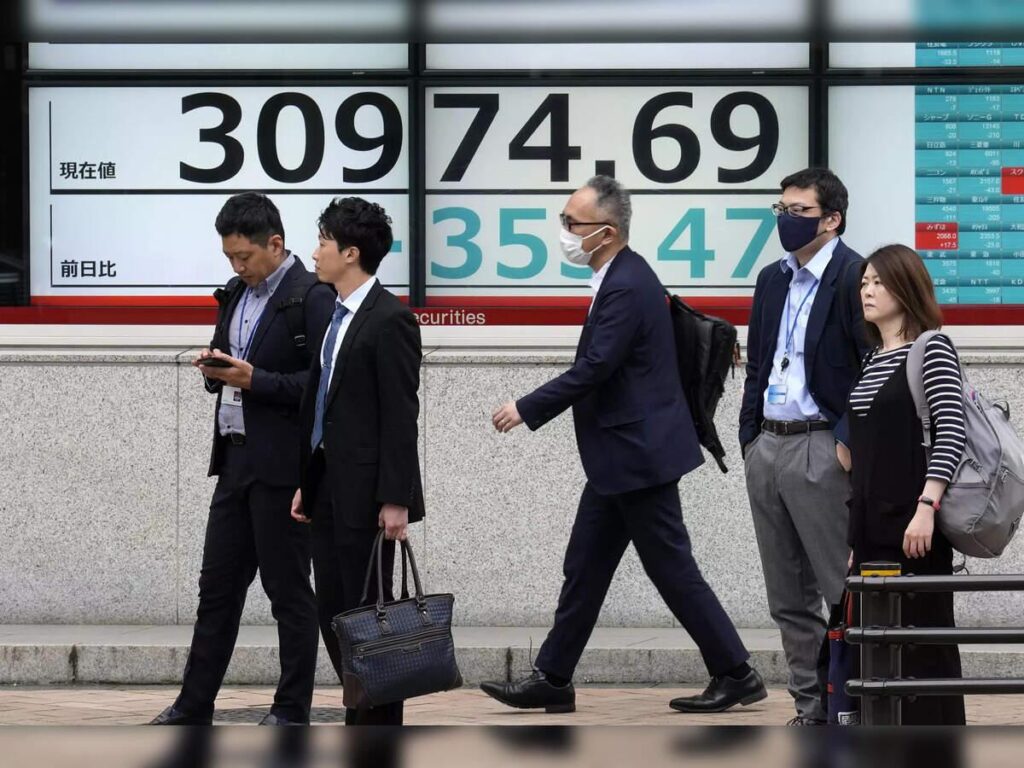Asian stock markets have surged in recent weeks, buoyed by strong economic data and easing geopolitical tensions. However, despite the upbeat momentum, some analysts are expressing caution, warning that the rapid rally may be masking underlying vulnerabilities. As investors flock to regional equities, concerns are growing over whether valuations have become stretched and if broader risks—ranging from inflation pressures to global policy shifts—could trigger a market correction. This cautious sentiment is underscored in a recent report by Nikkei Asia, highlighting the mixed outlook amid what appears to be a robust rebound.
Asian Stock Surge Sparks Concern Among Market Strategists
Following a robust upswing in Asian markets, several market strategists are voicing caution amid what some perceive as a potentially overheated rally. Despite strong economic indicators fueling investor enthusiasm, concerns linger about valuations reaching unsustainable levels and the possible impact of global geopolitical tensions. Experts emphasize that while the surge reflects optimism, it also raises questions about how long this momentum can be maintained without correction.
Key factors contributing to the cautious outlook include:
- Accelerating inflation rates in major economies
- Uncertainty surrounding monetary policy adjustments
- Supply chain disruptions impacting corporate earnings
- Rising debt levels in emerging Asian markets
| Market | YTD Performance | Analyst Sentiment |
|---|---|---|
| Tokyo (Nikkei 225) | +12.3% | Neutral to cautious |
| Shanghai Composite | +9.8% | Cautious |
| Hang Seng | +7.5% | Neutral |
Valuation Risks and Geopolitical Tensions Weigh on Investor Sentiment
Despite the impressive gains seen across major Asian markets, concerns about stretched valuations are increasingly shaping investor behavior. Analysts point to elevated price-to-earnings ratios in sectors like technology and consumer discretionary, suggesting that current prices may not reflect underlying economic realities. This valuation gap fuels uncertainty, creating a fragile landscape where even minor negative news can trigger sharp sell-offs.
Meanwhile, escalating geopolitical tensions in regions adjacent to key financial hubs add yet another layer of complexity. Factors contributing to investor unease include:
- Heightened diplomatic standoffs and military posturing
- Trade disputes affecting supply chains and export dependencies
- Policy unpredictability due to shifting international alliances
These risks collectively underpin a cautious stance among market participants, dampening sentiment despite the rally. The following table summarizes how valuation and geopolitical factors interplay to impact investor confidence:
| Risk Factor | Impact on Sentiment | Market Response |
|---|---|---|
| Valuation Concerns | Overheated asset prices raise caution | Profit-taking by institutional investors |
| Geopolitical Tensions | Risk of disruption in trade and investment flows | Increased volatility and selective sector sell-offs |
Analysts Urge Caution Advising Diversification and Risk Management Measures
Financial experts are signaling a note of restraint despite the recent surge in Asian equities. While markets have shown notable gains, analysts warn that the rapid recovery could mask underlying vulnerabilities, urging investors to approach with a well-considered strategy. Key concerns include potential geopolitical tensions, fluctuating global demand, and tightening monetary policies which may impact momentum. Consequently, diversification is highlighted as a critical tool to help mitigate exposure to unforeseen downturns.
Risk management remains a cornerstone of investment advice in this environment. Experts recommend a balanced portfolio with attention to asset allocation across sectors and regions. Emphasis is placed on monitoring volatility indicators and maintaining liquidity for flexibility. Key recommendations include:
- Spreading investments across emerging and developed markets
- Incorporating defensive sectors such as consumer staples and utilities
- Using hedging instruments where appropriate
| Risk Factor | Potential Impact | Suggested Response |
|---|---|---|
| Rising inflation | Reduced corporate earnings | Shift to inflation-resistant assets |
| Geopolitical uncertainty | Market volatility spikes | Increase exposure to safe havens |
| Policy tightening | Higher borrowing costs | Focus on low-debt companies |
In Summary
As the Asian stock rally continues to defy cautious forecasts, market watchers remain divided on its sustainability. While optimism prevails amid easing inflation concerns and robust corporate earnings, some analysts urge prudence, pointing to possible geopolitical risks and valuation pressures. Investors will be watching closely to see whether this bullish momentum can withstand upcoming economic data and policy shifts, making the days ahead critical for the region’s markets.
